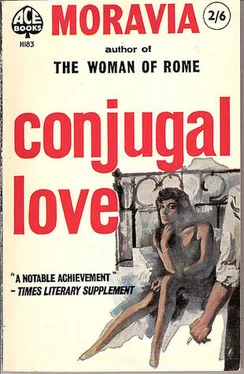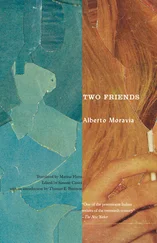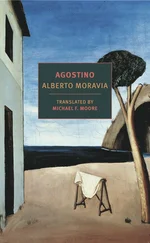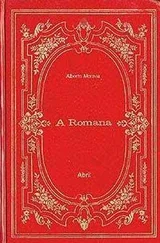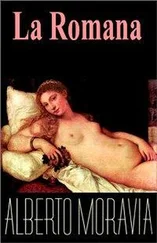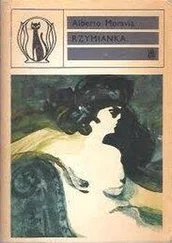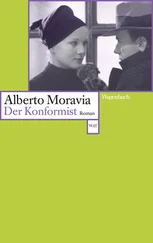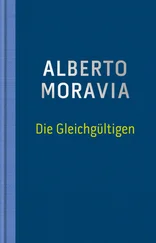On the other sides, without hedges or other dividing lines, the shade of the woods merged into the openness of the cultivated fields. There were a couple of farms attached to the property; and the farm buildings were situated at the edge of the park, on a hill from which one enjoyed a view over the whole of the immense plain. From the villa one could hear, without seeing them, the peasants in the neighbouring fields, urging on their oxen with brief cries; and quite often the farmer's hens would wander all over the park and come pecking right up to the front door.
Inside, the villa was crammed with pieces of old furniture, in which every style of the last century was represented, from 'Empire' down to 'art nouveau'. The last inhabitant, my maternal grandmother, had died there at the age of almost a hundred after having collected, with the avarice and patience of an ant, enough stuff to set up another house of the same size. The rooms contained double the amount of furniture that was needed; and drawers, cupboards and chests were overflowing with a mass of heterogeneous objects — crockery, linen, knick-knacks, rags, old papers, kitchen utensils, lamps, photograph albums and endless other things. The bedrooms were large and dark, with four-post beds, vast chests of drawers, dim family portraits. There were, besides, an indefinite number of sitting-rooms, a library with a great many shelves full of old books, most of them volumes on the writings of the Fathers, almanacs, and collections of reviews, and even a small bare room entirely taken up with a billiard-table; but the cloth was torn and there were hardly any cues left and no balls at all. One moved about with difficulty amongst all this creaking old junk, with no free space anywhere; it was as though the real inhabitants of the villa were the pieces of furniture and we merely intruders. However, I succeeded in partly clearing the first-floor sitting-room, restoring its original fine Empire appearance; and there I established my own study. We each chose a bedroom; and my wife took as her own sitting-room the drawing-room on the ground floor in which were the only two comfortable armchairs in the house.
We began, from the very first day, to lead a very regular life, almost like that of an industrious monastery. In the morning the old servant carried the tray into my wife's room and we had breakfast together, she in bed and I sitting beside her. Then I left her, went into my study, sat down at the desk and worked, or at least tried to work, until midday. In the meantime my wife, after lying in bed for a little, would get up, make a lengthy and meticulous toilet and, while she was dressing, give the cook her orders for the day. About midday I would rise from my work and go downstairs, where my wife would be waiting for me. We took our meals in a small dining-room, in front of a french window giving on to the park. After lunch we drank our coffee outside, in the shade of the chestnut tree. Then we would go up to our rooms for a short rest. We met again at tea in the drawing-room on the ground floor. There was not a great variety of walks; Tuscany, where it is cultivated, is more like a garden, though without seats or paths, than open country: so we went either along the winding tracks that led across the fields from one farm to another; or we walked along the grassy bank of a canal that crossed the whole length of the plain; or, again, we strolled along the main road, but without ever going as far as either the village or the town. When we returned from our walk, which never lasted more than an hour, I gave my wife her English lesson and then, if there was still time, I read aloud to her or made her read to me. Then we dined, and after dinner we read again or conversed. Finally we went, not very late, to our rooms, or rather, I followed my wife into hers. This was our moment for making love — towards which, in truth, our whole day had been tending. I found my wife always ready and always docile, as though she were conscious of providing both herself and me with a reward and an outlet after so many hours of tranquillity. In the rustic night that looked in through the wide-open windows, its deep silence broken only at rare intervals by the cry of a bird, in that dim and lofty room, our love would burst into sudden flame and burn long and silently, clear and living like the flame of the old oil lamps that once had illumined those sombre apartments. I felt that I loved my wife more each day, the feeling of each evening nourishing itself and gathering strength from that of the evening before; and she, on her side, seemed never to exhaust the treasure of her affectionate, sensual compliance. During those nights, for the first and, perhaps, the last time in my life, I seemed to grasp the meaning of what true conjugal passion can be — that mixture of violent devotion and lawful sensuality, of exclusive, limitless possession and confident joy in that possession. For the first time I understood the sometimes indiscreet sense of ownership that some men attach to the marriage relationship, saying' my wife' in the same way that they say 'my house' or 'my dog' or 'my motor car'.
The thing which, on the other hand, did not go too well, though conditions were so favourable, was my work. My idea was to write a long story or short novel, and the subject, the story of a marriage, interested me passionately. It was our story, the story of my wife and me, and I felt that I had the whole thing already fixed in my mind, separated into single, distinct episodes, so that it could be filled out with the greatest ease. But when I sat myself down in front of my paper and started trying to write, the thing would get all tangled up. Either the sheet would be filled with words and phrases crossed out, or I would go straight ahead for a page or two and then realize that I had been piling up a mass of vague generalizations and sentences without concrete meaning; or again, after writing the first few lines, I would stop and remain motionless and absorbed in front of the blank page, looking as if I were in the act of reflecting deeply, but, in reality, with an empty head and a mind that had ceased to function. I have a highly developed critical sense, and for some years I wrote criticisms for newspapers and reviews; and I very soon realized, therefore, that my work was not merely not progressing but was actually going worse than it had before. Formerly I had been capable of fixing my mind on a subject and developing it, so to speak, in an orderly manner without, it is true, ever attaining to poetry, but always keeping up a certain standard of elegance and clarity in my writing. Now, on the other hand, I saw that it was not only the subject-matter, but also my former control of style, that was eluding me. In spite of myself, some malign force would cram my page with repetitions, solecisms, obscure, limping sentences, vague adjectives, over-emphatic idioms, commonplaces, hackneyed phrases. But above all, I was clearly conscious that what I lacked was rhythm — I mean that regular, harmonious breath that sustains the process of development in prose, as metre sustains and regulates that of poetry. I remembered that once upon a time I had possessed this rhythm — in a very measured and modest, but still sufficient, degree. But that too had now deserted me: I stumbled and stammered and lost myself in a ferment of discord and clamour.
Perhaps I should have let my work go altogether, since the love I felt for my wife sufficed for my happiness, if it had not been that she herself urged me to persevere. Not a day passed that she did not ask me, with an affectionate, and at the same time exacting, solicitude, how my work was going; and I, ashamed of confessing that it was not going at all, answered her rather vaguely that it was progressing steadily. She seemed to attach the greatest importance to this work, as though it were something for which she herself was responsible; and I felt more strongly every day that I now owed it not so much to myself as to her to accomplish the writing of my story. It was a proof of love that I had to furnish for her, as a demonstration of the profound change that her presence had wrought in my life. That was what I had meant when I had embraced her and whispered that henceforth she would be my Muse. With that daily inquiry of hers about the employment of my morning, she had, without knowing it, ended by making it a point of honour with me — rather like the mythological ladies who ask the knight to slay the monster and bring back the golden fleece; and never has the fable been known in which a cowed and contrite knight has returned empty-handed, confessing that he had been unable to find the fleece and that he had not had the courage to face the dragon. This point of honour took on an even more urgent and peremptory aspect owing to the particular character of her insistence, which was not that of a cultivated woman versed in the problems of intellectual labour, but that of an ignorant and ingenuous mistress who probably imagined that writing poetry was, after all, a simple matter of will and application. Once, during our daily walk, I tried to draw her attention to the many difficulties and the not infrequent impossibilities in literary creation; but I saw at once that she could not understand me. 'I'm not a writer,' she said, after listening to what I had to say, 'nor have I any literary ambitions. . but, if I had, I think I should have lots of things to say. . and, in the conditions for working that you have here, I'm sure I should be able to say them very well.' She looked at me sideways for a moment and then added, with grave coquettishness: 'Remember you promised to write a story with me in it. . and now you must keep your promise.' I said nothing, but I could not help thinking angrily of the many pages bristling with cancellations and superimposed lines piling up on my desk.
Читать дальше
